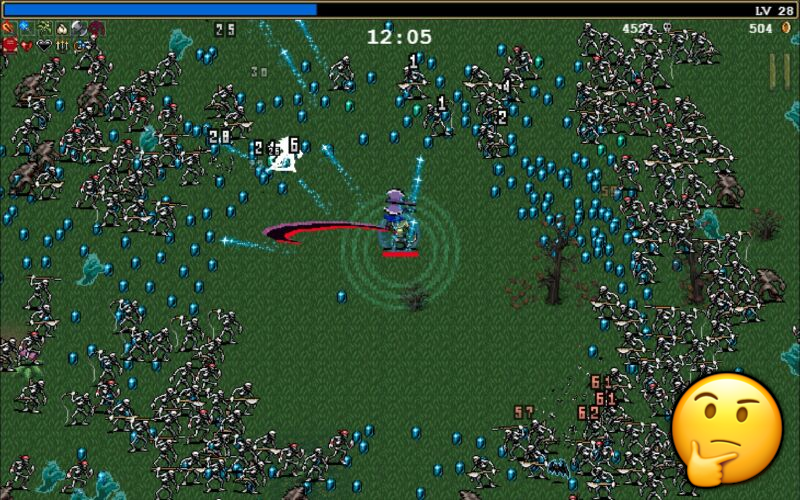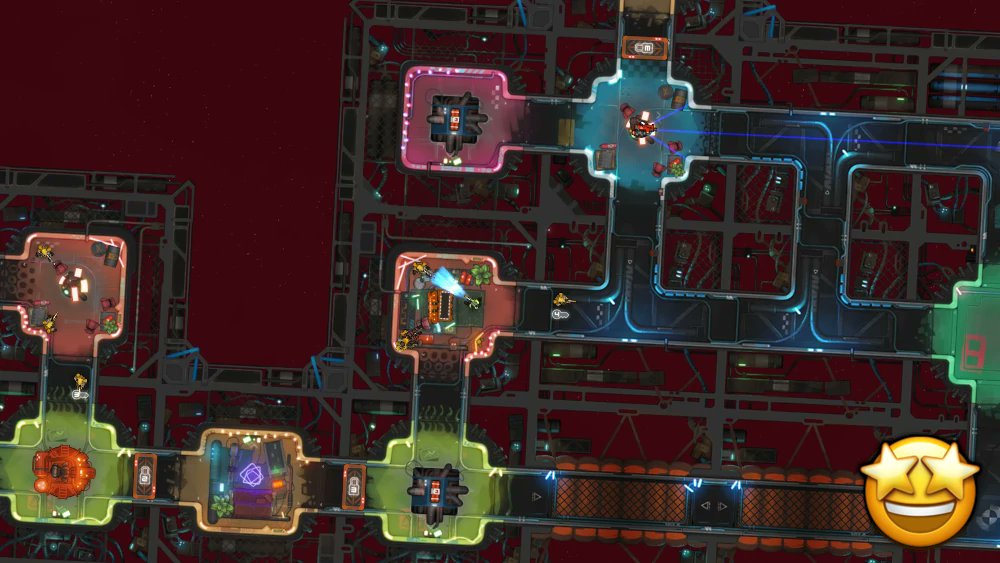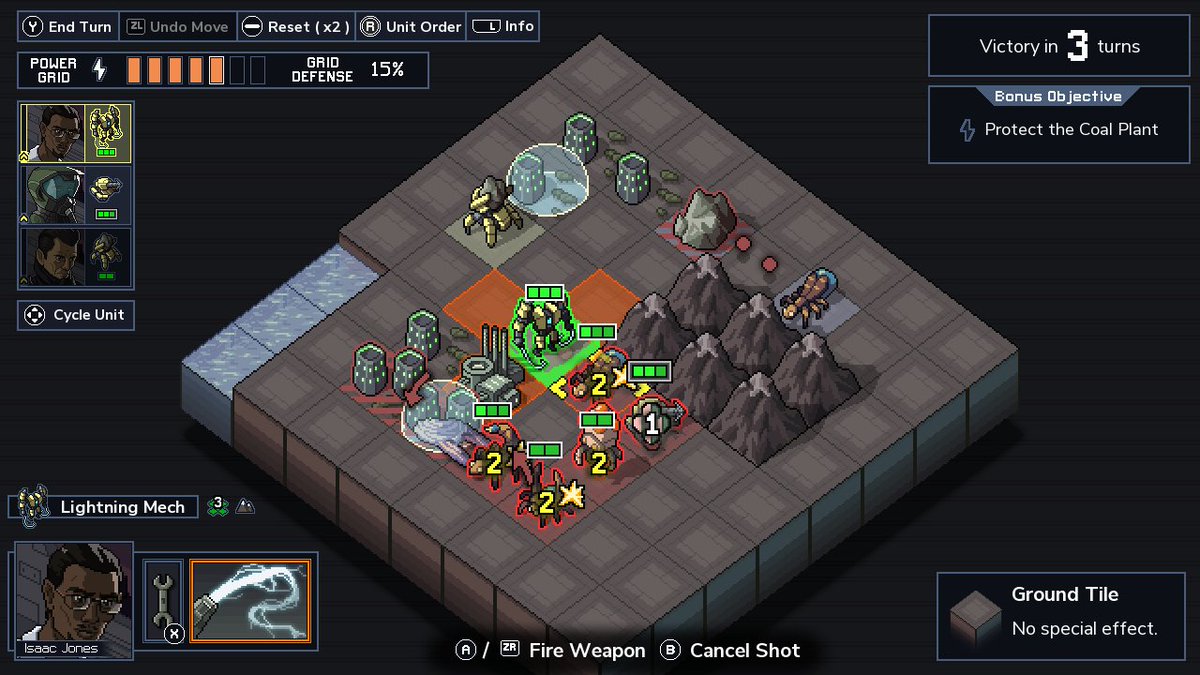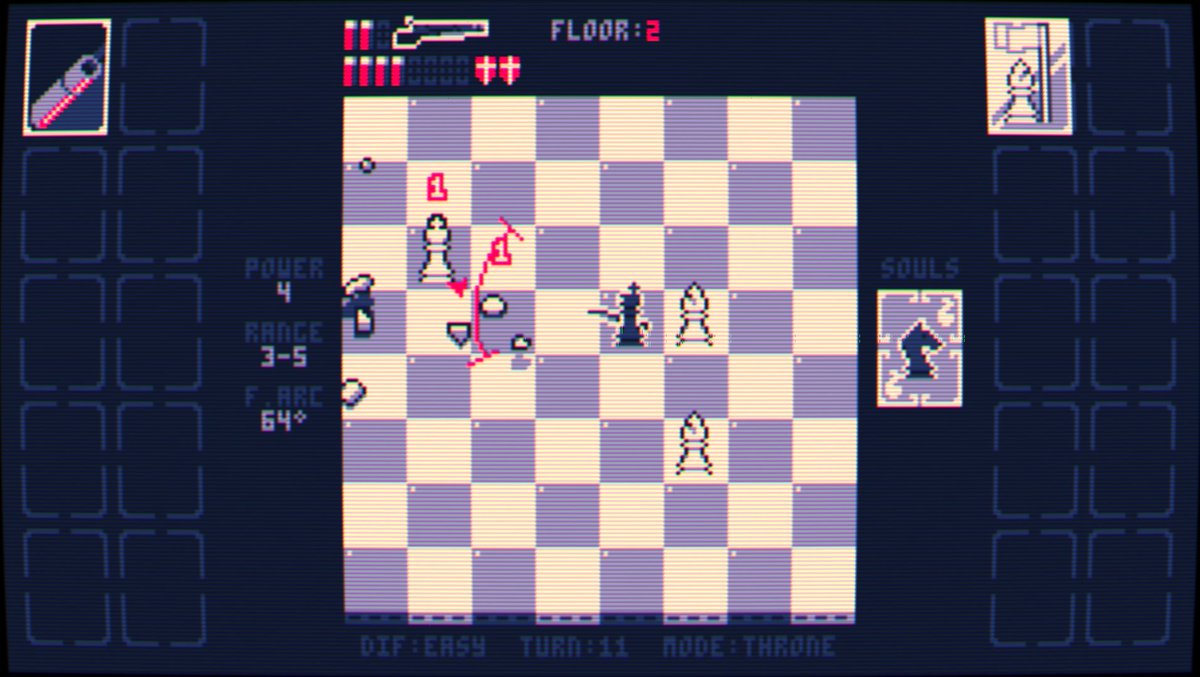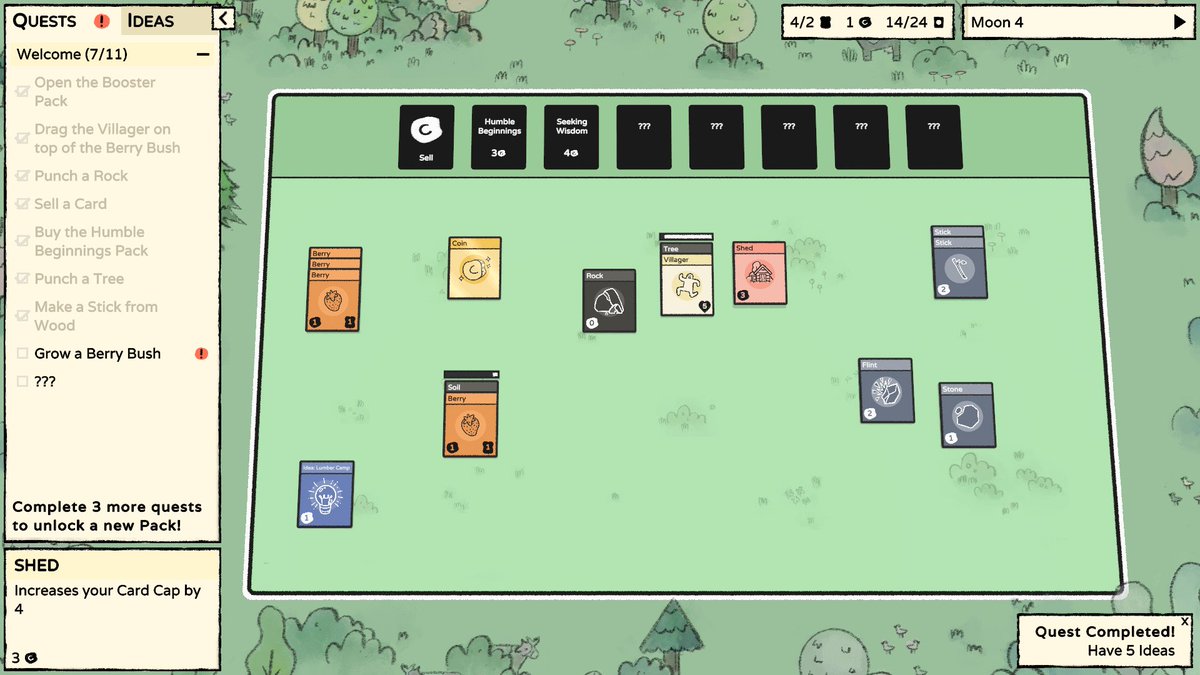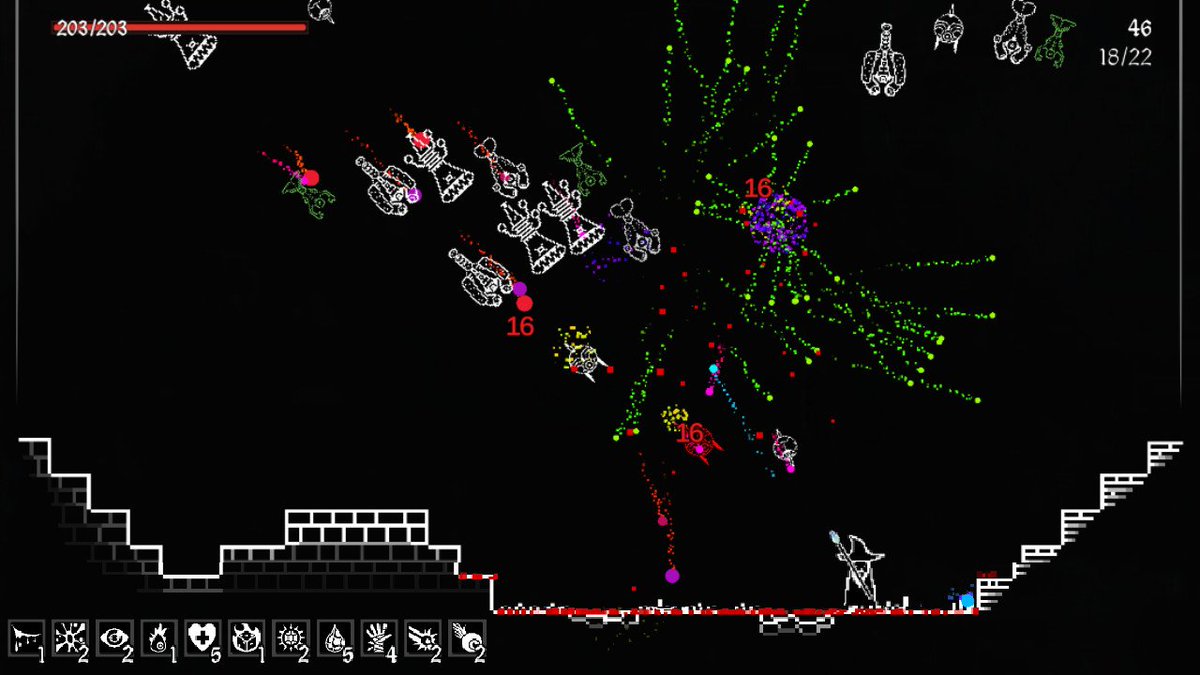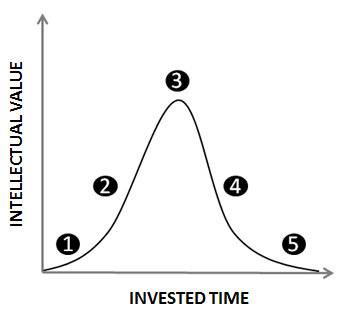So many of the #gameDesign thoughts I've talked about over the years come together to form something truly beautiful in @wombatstuff's Mosa Lina.
Examples and relevant articles below! 🧵
Examples and relevant articles below! 🧵
Mosa Lina focuses 100% on movement. Almost no numbers to think about. Just find ways to use your random tools to traverse space. Touch the fruit, get back to the portal. Very simple, very elegant, but also emergently quite complex!
📜 Article: gamedeveloper.com/design/spatial…
📜 Article: gamedeveloper.com/design/spatial…
Mosa Lina doesn't use extrinsic rewards. No "meta progression". No achievements. Every time you open it, you’re in the same state you were in every other time. An ode to the intrinsic motivation of play.
📜 Article 1:
📜 Article 2: gamedeveloper.com/business/rewar…
fischerdesign.medium.com/artifact-makes…

📜 Article 1:
📜 Article 2: gamedeveloper.com/business/rewar…
fischerdesign.medium.com/artifact-makes…

Mosa Lina has no "reset problem". In fact, just reroll your tools and levels anytime and keep going. Every level, and every attempt at solving it, stands on its own. No need to "ease you in" every run or keep you hooked via RPG-like stats.
📜 Article: gamedeveloper.com/design/the-res…
📜 Article: gamedeveloper.com/design/the-res…
Mosa Lina does not rely on "phantom depth". It uses reduced audiovisuals to focus on play. While it's very random, there’s no "gambling" in the mechanics. All items are complex verbs interacting with everything. No content for content’s sake.
📜 Article: gamedeveloper.com/business/diagn…
📜 Article: gamedeveloper.com/business/diagn…
Mosa Lina has no busywork, grind or treadmill of any kind. Start the game and you’re in a random level with random tools solving problems. It's easy to forget how that can actually be enough for a good video game that can stand on its own.
📜 Article: fischerdesign.medium.com/when-games-ido…
📜 Article: fischerdesign.medium.com/when-games-ido…
Mosa Lina is in line with self-determination theory.
Autonomy: Countless ways to solve situations.
Competence: Go from "wtf impossible?!" to reliably speedrunning 9 levels in 3-5 minutes.
Relatedness: Insanely gif-able (+ a built-in recorder).
📜 Article: gamedeveloper.com/design/why-do-…

Autonomy: Countless ways to solve situations.
Competence: Go from "wtf impossible?!" to reliably speedrunning 9 levels in 3-5 minutes.
Relatedness: Insanely gif-able (+ a built-in recorder).
📜 Article: gamedeveloper.com/design/why-do-…

Finally, while Mosa Lina is well made and comes in a unique, coherent audiovisual style, its minimalist approach really allows its concept to shine. It unlocks new design space for video games and I'm sure will inspire game creators for years.
📜 Article: fischerdesign.medium.com/games-as-conce…
📜 Article: fischerdesign.medium.com/games-as-conce…
@threadreaderapp unroll.
• • •
Missing some Tweet in this thread? You can try to
force a refresh







